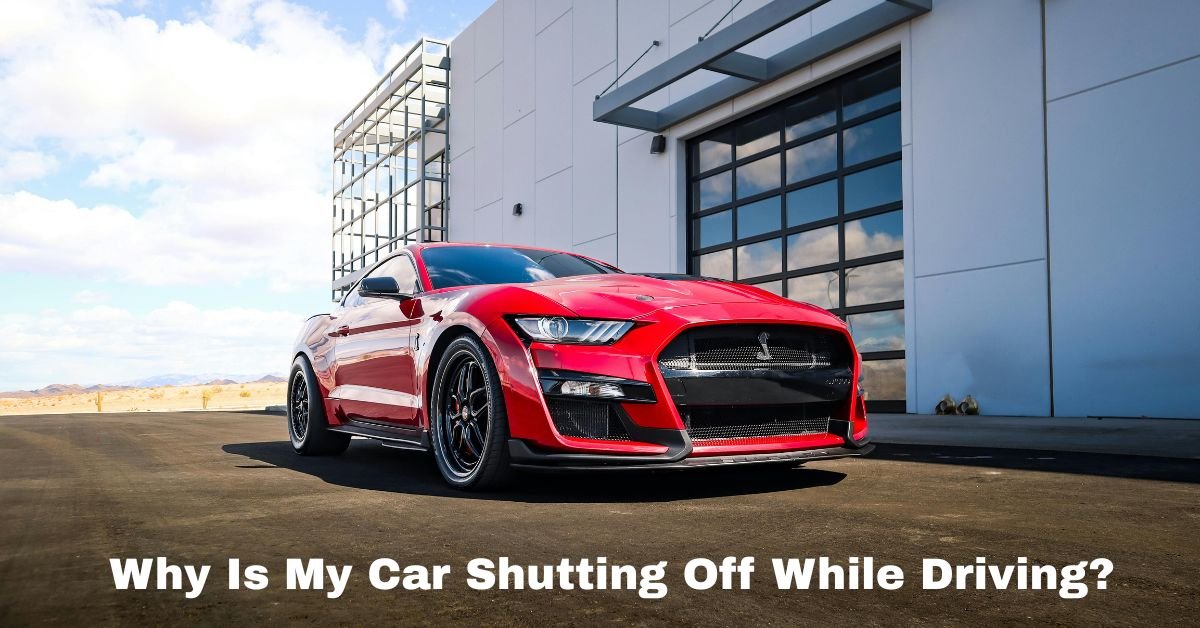Few things are more alarming than having your car suddenly shut off while you’re driving. Whether you’re cruising on the highway or navigating city streets, an unexpected engine shutdown can be both dangerous and frustrating. If this has happened to you, you’re not alone—and there are a number of potential reasons for this issue. In this post, we’ll explore some of the most common causes of a car shutting off while driving and what you can do to fix it.
Why Is My Car Shutting Off While Driving?
1. Fuel System Issues
One of the most common reasons a car shuts off while driving is a problem with the fuel system. The engine simply cannot continue to run if it is not receiving the necessary fuel.
- Fuel Pump Failure: The fuel pump sends gas from your tank to your engine. The automobile will stall if it malfunctions because fuel cannot get to the engine.
- Clogged Fuel Filter: A dirty or clogged fuel filter can block fuel flow, leading to engine shutdowns.
- Empty Fuel Tank: Sometimes the issue is as simple as running out of gas, especially if your fuel gauge isn’t working correctly.
2. Electrical Problems
Modern vehicles rely heavily on electrical systems. Any major issue here can cause your engine to cut out without warning.
- Alternator malfunction: When the engine is operating, the alternator provides electricity to your vehicle’s electrical systems. A bad alternator means your battery will eventually lose charge, possibly causing the engine to stop.
- Bad Battery Connection: Loose or corroded battery terminals can lead to intermittent power loss.
- Ignition Switch Failure: If the ignition switch is worn out, it can momentarily lose contact and shut off the engine.
3. Sensor Malfunctions
Cars today are equipped with various sensors that help the engine run efficiently. When one of these sensors malfunctions, it can send incorrect data to the engine control unit (ECU), resulting in a shutdown.
- Crankshaft location Sensor: This sensor keeps track of the location and speed of the engine. If it fails, the ECU may not be able to keep the engine running.
- Mass Airflow Sensor (MAF): This measures how much air is entering the engine. A faulty MAF sensor can cause poor engine performance or stalling.
Must Read: Why Is My Car Rattling When I Drive?

4. Overheating
Engines are made to run at a particular temperature range. If your car is overheating, the ECU may shut it down to prevent damage.
- Low Coolant Levels: Not enough coolant means your engine can’t regulate its temperature properly.
- Broken Thermostat or Radiator: If the thermostat is stuck or the radiator is clogged, your car may overheat quickly.
5. Transmission Problems
In some cases, issues with the transmission can cause the car to stall or shut off, particularly in automatic vehicles.
- Torque Converter Failure: The torque converter replaces the clutch in an automatic transmission. If it fails, the engine might stall when the vehicle comes to a stop or even while it’s in motion.
What Should You Do If Your Car Shuts Off While Driving?
- Remain composed and pull over safely. Try to move your car to the side of the road and turn on your hazard lights.
- Try Restarting the Engine: If it starts again, drive cautiously to a repair shop.
- Call for Help: If you can’t restart the engine, it’s best to call roadside assistance or a tow service.
- Diagnose the Problem: Take your car to a trusted mechanic. They’ll likely use a diagnostic scanner to check for trouble codes and pinpoint the issue.
Final Thoughts
A car shutting off while driving is more than just an inconvenience—it’s a safety risk. The good news is, most of the causes can be diagnosed and fixed by a qualified mechanic. Whether it’s a fuel delivery issue, a bad sensor, or an overheating engine, understanding the warning signs can help you take action before it becomes a bigger problem.
If this has happened to you, don’t ignore it. Your car is trying to tell you something—and the sooner you listen, the better.
